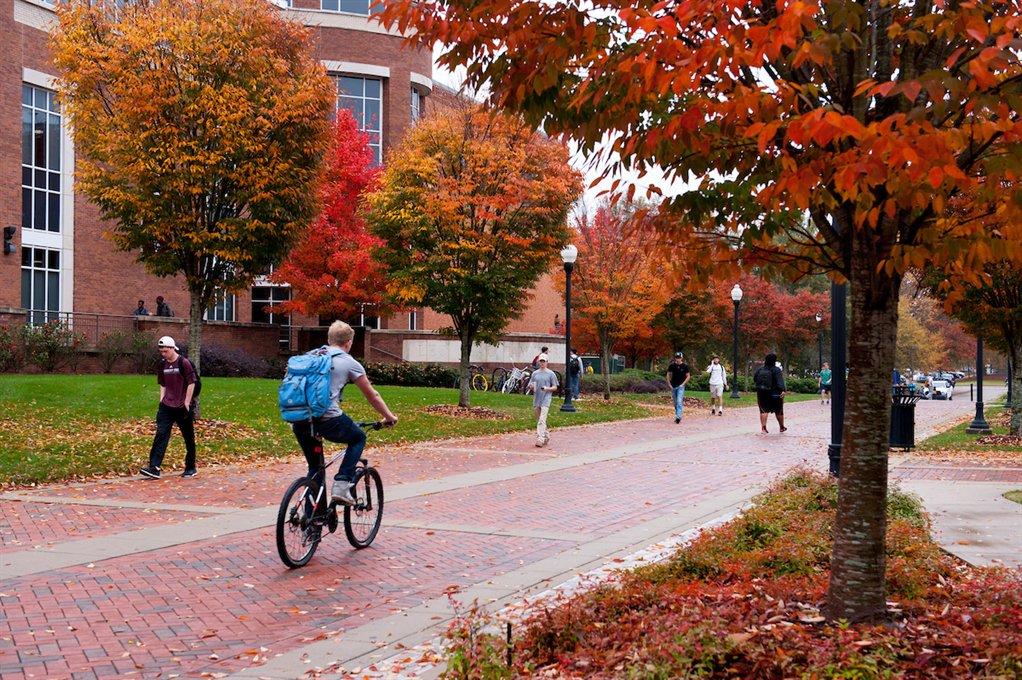Overview
The College of Veterinary Medicine (CVM) is fully accredited by the American Veterinary Medical Association’s Council on Education, the Association for Assessment and Accreditation of Laboratory Animal Care's animal care and use program, the teaching hospital and clinics by the American Animal Hospital Association, and the four-laboratory diagnostic system by American Association of Veterinary Laboratory Diagnosticians. The B.S. in veterinary technology program is accredited by the American Veterinary Medical Association’s Committee on Veterinary Technician Education and Activities.
The college is comprised of three academic departments supporting 118 full-time tenure and clinical track faculty, 421 veterinary students, 65 veterinary medical technology students, 70 graduate students (MS, PhD, and DVM-PhD), and 300 staff. In addition to faculty and staff located on the main MSU campus, the CVM has full-time faculty located at diagnostic laboratories in Pearl, the Animal Emergency and Referral Center in Flowood, an aquatic research and diagnostic laboratory in Stoneville in the Mississippi Delta, and at the Institute for Marine Mammal Studies in Gulfport. Students participate at all locations.

The college has a progressive, professional curriculum. The first two years consist of core didactic lectures and laboratories. The final two years consist of mentored instruction in mandatory clinical rotations and elective rotations and courses. The client-owned animal caseload in our CVM campus hospital and Flowood emergency/referral clinic (last year 28,536 cases; not counting the large animal ambulatory practice) is complemented by a nationally recognized shelter medicine program. Students graduating in 2022, completed on-average 73 spays and neuters.
The MSU CVM curriculum provides its graduates with a strong, multi-species foundation and allows opportunity to focus on species or discipline interests. MSU CVM is one of only several US colleges of veterinary medicine that—like most colleges of human medicine— requires two full years of mentored clinical education. All coursework in the first two years are core requirements for all students. MSU students receive core instruction in all major domestic species and do not “track.” The fourth year provides time (26 weeks) for students to select areas, with the approval of their advisors, to concentrate by taking elective coursework and externships in private practices, other universities, institutions and industry

A large majority of MSU CVM graduates enter private practice immediately following graduation. However, for those that do seek additional clinical training because they want to specialize, our graduates are very successful. MSU CVM is one of only seven North American colleges of veterinary medicine that has averaged a greater than 70% successful matching rate for internships/residencies over the past eight years.
The college has a large aquatic animal program that covers the health and production spectrums of U.S. farm-raised food fish, fish for food production in developing countries, and rescue and conservation of critically endangered Kemp's ridley sea turtles and bottle-nosed dolphins in the Mississippi Sound.
MSU’s College of Veterinary Medicine is recognized as one of the world's four Food and Agriculture Organization of the United National Reference Centers for Antimicrobial Resistance and Aquaculture Biosecurity. The college is the lead academic institution for the USAID-funded Feed the Future Innovation Lab for Fish with currently 20 active projects in Ghana, Kenya, Madagascar, Nigeria, Malawi, Zambia, the Pacific Islands, the Philippines, Peru, Cambodia, and Bangladesh.
For more information about the college visit
www.vetmed.msstate.edu.